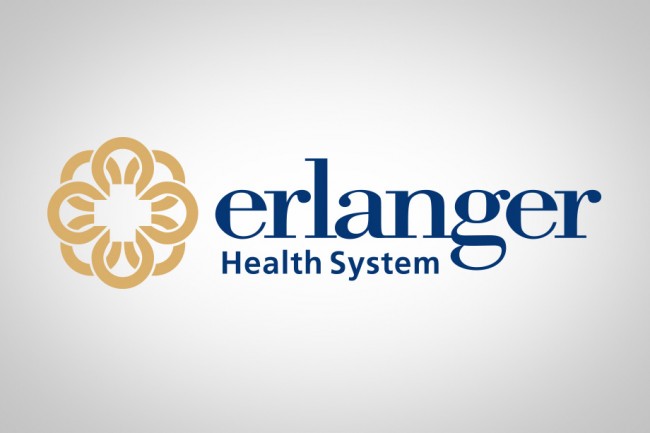A groundbreaking clinical trial conducted at Erlanger Health System, and other sites across the nation, confirms what cardiologists and radiologists have long suspected: coronary computed tomographic angiography (coronary CTA, also known as cardiac CT) is extraordinarily effective in accurately diagnosing patients with low to moderate chest pain.
The findings of the study revealed that a cardiac CT scan may be a better way to diagnose chest pain than the current standard tests such as an EKG or stress tests. “For patients arriving at Erlanger with no prior history of heart disease who are experiencing chest pain or other symptoms that could indicate a heart attack, a CT scan (coronary CT angiography, or CCTA) proved to be equal or better in accurately diagnosing heart disease,” explained Dr. Harry Severance, Director of the Erlanger Institute for Clinical Research and the principal investigator of the study at Erlanger. “The CT scans had fewer false positives — meaning fewer negative trips to the catheterization lab — less radiation, and less cost to the patient and hospital than the currently most utilized standard test: the nuclear stress test.”
Erlanger already clinically utilizes the new CT technology that was tested in the trial, and qualifying patients with chest pain are now clinically evaluated at Erlanger with this exciting new technology.
Erlanger was invited to be a test site for this important trial, sponsored by the National Institutes of Health, to study the use of cardiac imaging for diagnosing problems associated with chest pain — the most common clinical cardiology problem. The PROspective Multicenter Imaging Study for the Evaluation of Chest Pain, or PROMISE study, was led by Duke Clinical Research Institute (DCRI) and the Duke Cooperative Cardiovascular Society (DUCCS Research Network).
The results of the PROMISE study also provide valuable information to insurance carriers that have traditionally insisted on patients receiving older technology, such as a nuclear stress test, to diagnose chest pain. With this data, insurance companies may be more willing to pay for cardiac CT scans as a diagnostic tool.
Moreover, with rapidly progressing technology in the world of imaging, these results will continue to lead to increasingly better results with progressively decreasing radiation doses.
Results of the PROMISE study were recently published in the New England Journal of Medicine and simultaneously revealed at the American College of Cardiology 2015 Scientific Assembly. Participants in the PROMISE trial were randomly assigned to one of two groups for the study. One group received cardiac CT imaging tests, while the other group received traditional testing for chest pain.
Erlanger was selected to participate in the trial due to its ongoing collaborative research relationship with DCRI and DUCCS, and because the Erlanger Institute for Clinical Research provided the necessary research infrastructure. Critical support and participation were also provided by Erlanger’s Cardiology, Emergency Medicine, and Radiology departments.
“Erlanger was not only a participating site in the trial, but we were one of the ‘higher enrolling’ sites in the Duke Cooperative Cardiovascular Society Research (DUCCS) network component of the trial,” explained Dr. Severance. Moreover, Erlanger enrolled the last patient in the trial, pushing the target number over the goal of 10,000 patients enrolled in the study.
“It’s important for Erlanger to participate in these critical types of research,” Dr. Severance said. “Trial results like these lead to advancements in the delivery of patient care by improving outcomes and reducing instead of increasing costs to patients and to hospitals. And all this can be achieved with a test that we currently offer at Erlanger.”
If you are experiencing severe chest pain, call 911. If you are experiencing low to moderate chest pain, talk to your doctor about getting an accurate diagnosis. Don’t have a doctor? Find one here.







